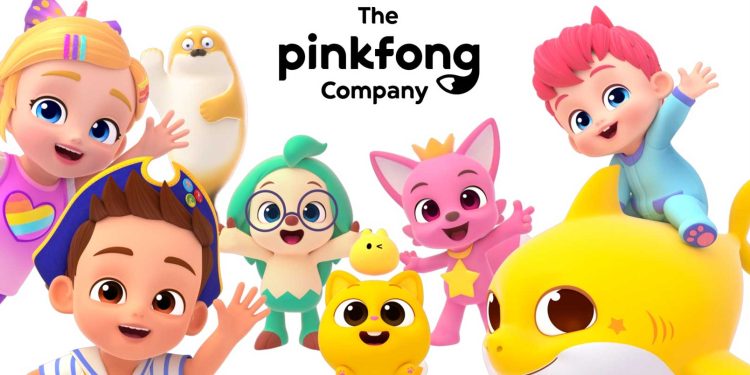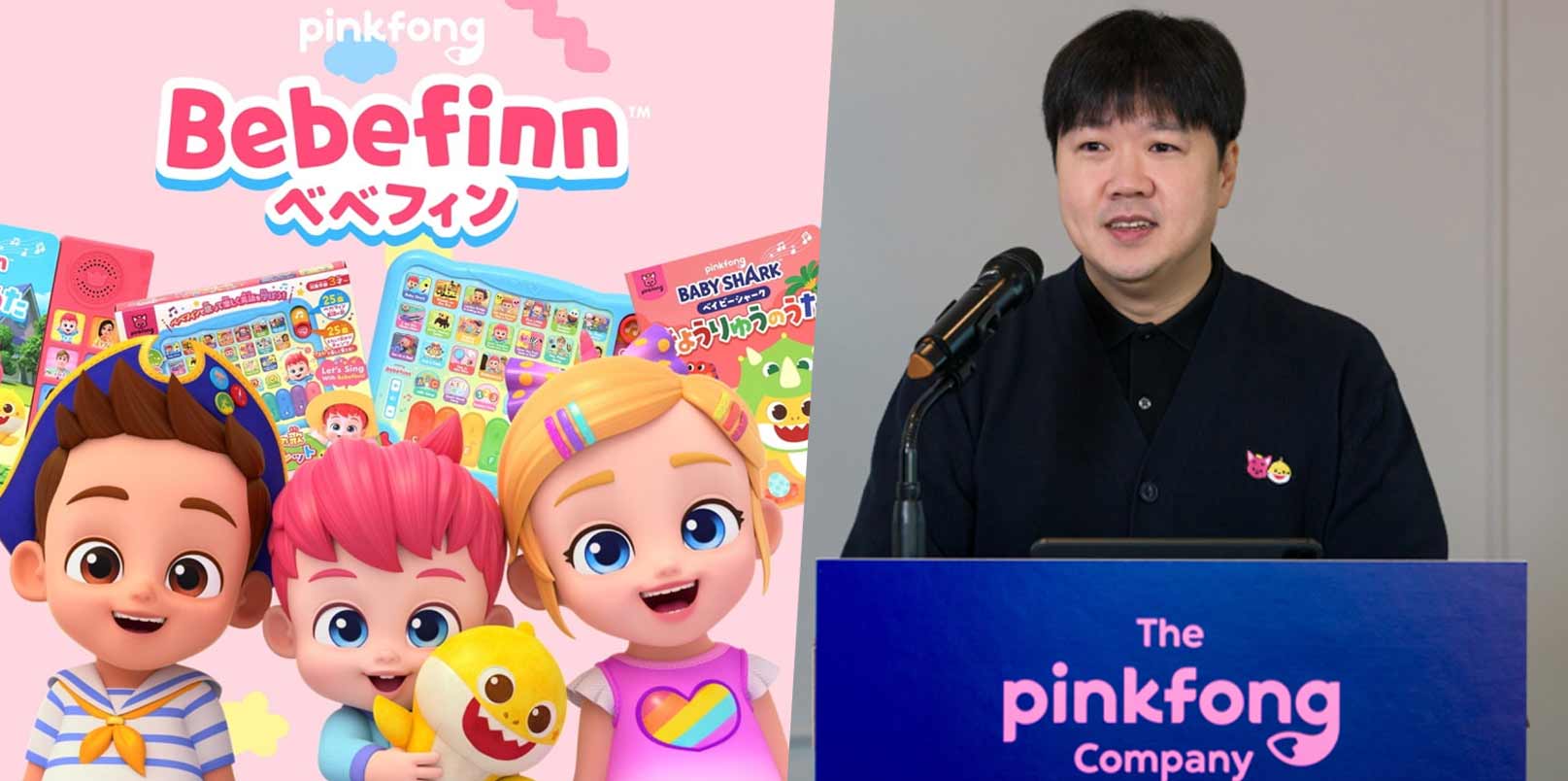Korea’s startup ecosystem is increasingly looking to cultural IP as a scalable export model. The Pinkfong Company, creator of “Baby Shark,” is now testing that thesis with its KOSDAQ IPO filing, aiming for a valuation of up to $395 million. The listing will reveal how far global investor appetite extends for Korea’s family entertainment sector and its broader creative economy.
Pinkfong Files for KOSDAQ Listing as Cultural IP Export Faces Market Test
Global family entertainment company The Pinkfong Company, best known for its viral IP “Baby Shark,” submitted its securities registration statement to Korea’s Financial Services Commission on September 22. The move follows its approval in the Korea Exchange’s preliminary review on September 19, putting the company on track to complete its KOSDAQ IPO within 2025.
The company plans to issue 2 million new shares, with an indicative price range of KRW 32,000–38,000. This values the IPO at KRW 64–76 billion (USD 46–55 million) and the post-listing market capitalization between KRW 459.2–545.3 billion (USD 333–395 million).
Demand forecasting is set for October 28–November 3, with retail subscriptions on November 6–7. Mirae Asset Securities and Samsung Securities are joint lead underwriters.
Pinkfong’s Growth Trajectory: From Baby Shark to Global IP Portfolio
Founded in 2010, The Pinkfong Company has built a repeatable model of global IP commercialization with brands including Pinkfong, Baby Shark, Bebefinn, and Sillook. It has released over 7,000 content titles in 25 languages across 244 countries.
Financial results show KRW 97.4 billion in revenue in 2024 under K-IFRS standards, an 11% increase year-on-year, while operating profit surged 371% to KRW 18.8 billion. Operating margin improved sharply from 4.5% to 19.3%, and the first half of 2025 maintained a near 20% margin.
The Pinkfong Company successfully maintains its digital dominance with “Baby Shark Dance” as the world’s most-viewed YouTube video for 58 consecutive months. The company’s series such as “Bebefinn Playtime” and “Pinkfong Dino Kindergarten” reached No. 1 in Netflix Kids charts in 11 countries and ranked in the Top 10 across 25.
Across platforms, the company has recorded 180 billion YouTube views, 280 million subscribers, and 530 million app downloads.
Leadership View: Building Trust Through Global Expansion
Pinkfong’s CEO Kim Min-seok emphasized the strategic goals of the IPO:
“The Pinkfong Company has firmly established itself as a global family entertainment brand through its track record of successful IP. This KOSDAQ listing will allow us to strengthen our international operations, expand engagement with stakeholders, and build long-term trust with customers, partners, and investors.”
The company plans to channel IPO proceeds into upgrading IP production processes, launching premium long-form animation, and expanding global LBE (Location-Based Entertainment) ventures such as branded pop-up stores and experiential events.
Its in-house AI dubbing tool, OneVoice, is also expected to reduce production costs and accelerate IP launches.
The IPO Journey of The Pinkfong Company: Strategic Export of Korean Cultural IPs
Pinkfong’s IPO underscores Korea’s push to treat cultural IP as a strategic export sector, alongside K-pop, gaming, and webtoons. The company derives 76% of revenue from overseas markets, highlighting how Korean startups can scale global-first models beyond traditional tech.
By proving that children’s content IP can deliver stable profit margins, scalable localization, and global brand recognition, Pinkfong sets a precedent for Korean startups looking to balance creativity with monetization. This is especially relevant as policymakers and investors debate how to diversify Korea’s startup ecosystem beyond manufacturing and deep tech.
Moreover, the IPO tests investor appetite for cultural content companies on KOSDAQ, which has historically been dominated by tech and biotech listings. Success could encourage more IP-driven firms, including K-drama/digital arts studios and gaming startups, to pursue similar funding routes.
A Global Benchmark for Korea’s Cultural IP Strategy
Most importantly, Pinkfong’s planned listing represents Korea’s experiment in positioning family entertainment and cultural IP as a global growth engine. If successful, the IPO could validate investor confidence in Korean creative industries while signaling to policymakers the viability of IP exports as a long-term economic strategy.
Not only that but Pinkfong’s case will also serve as a benchmark for global founders and investors: how a Korean startup scaled into a global cultural brand with $395 million market capitalization—and whether Korea’s capital markets are ready to back the next wave of creative IP champions.
– Stay Ahead in Korea’s Startup Scene –
Get real-time insights, funding updates, and policy shifts shaping Korea’s innovation ecosystem.
➡️ Follow KoreaTechDesk on LinkedIn, X (Twitter), Threads, Bluesky, Telegram, Facebook, and WhatsApp Channel.






